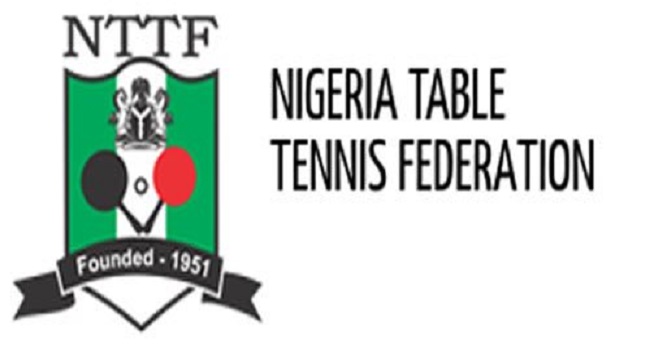The upcoming elections for the Nigeria Table Tennis Federation (NTTF) board have sparked controversy and calls for intervention by the National Sports Commission (NSC). Kehinde Aiyelabegan, the incumbent Players’ Representative, has voiced concerns about potential manipulation and irregularities in the electoral process, urging the NSC to relocate the elections from Lagos to Abuja to ensure fairness and transparency. Aiyelabegan’s concerns stem from alleged attempts by some NTTF board members to hijack the elections and disregard established procedures, particularly regarding voter eligibility. The situation highlights the ongoing struggle for power and influence within the NTTF and the need for a transparent and accountable electoral system.
Aiyelabegan’s central argument revolves around the alleged expansion of voter eligibility, which he believes deviates from previous practices. Traditionally, only accredited delegates from each state sports council, totaling 74 voters, were permitted to participate in the elections. However, a recent NTTF announcement, disseminated through the Nigerian Table Tennis Coaches Association platform, declared that the elections would be open to all technical officials and athletes. Aiyelabegan contends that this sudden change in policy creates an uneven playing field, particularly favoring his opponent from Lagos, who could potentially mobilize a significant number of unofficial voters. This alleged manipulation of the electoral process threatens the integrity of the elections and raises questions about the motives of those seeking to expand the voter base.
The relocation of the elections to Abuja, as advocated by Aiyelabegan, is presented as a crucial step towards ensuring a fair and transparent process. By holding the elections under the direct supervision of the NSC in the nation’s capital, Aiyelabegan believes that the influence of potentially biased NTTF board members can be minimized. Abuja, being a neutral ground, would theoretically provide a more level playing field for all candidates and prevent undue influence from local power brokers. This call for external oversight underscores the lack of trust in the existing electoral framework within the NTTF and the perceived need for an independent authority to guarantee the integrity of the process.
Beyond the immediate concerns about electoral malpractice, Aiyelabegan’s appeal to the NSC also highlights broader issues within Nigerian table tennis, particularly regarding player selection and development. Aiyelabegan, a veteran coach renowned for nurturing young talent, emphasizes the importance of revitalizing grassroots programs and reinstating table tennis leagues at both state and national levels. He criticizes the prevalent practice of hand-picking players for national duty, advocating for a more open, transparent, and merit-based selection process. This critique points to a perceived lack of fairness and opportunity within the current system, potentially hindering the development of young talent and limiting the nation’s overall competitiveness in international table tennis.
Aiyelabegan’s proposed three-stage trial system aims to address the perceived shortcomings in player selection. This system, according to Aiyelabegan, would ensure that the most deserving players, regardless of their connections or background, are given the opportunity to represent Nigeria on the international stage. By prioritizing performance over connections, Aiyelabegan hopes to create a more equitable and competitive environment within Nigerian table tennis. This proposed reform reflects a broader desire for a more meritocratic system within the sport, challenging established power structures and advocating for a more inclusive approach to player development.
The upcoming NTTF elections, scheduled for September 10, 2025, represent a critical juncture for the future of table tennis in Nigeria. The allegations of potential manipulation and the call for NSC intervention highlight the need for urgent reforms within the NTTF’s electoral processes. Aiyelabegan’s advocacy for transparency, fairness, and a merit-based system of player selection underscores the broader challenges facing the sport. The outcome of these elections, and the subsequent actions of the NTTF, will significantly impact the development of table tennis in Nigeria and the nation’s ability to compete effectively on the global stage. The situation calls for decisive action by the NSC to ensure that the elections are conducted with utmost integrity and that the voices of all stakeholders are heard and respected. The future of Nigerian table tennis depends on the establishment of a transparent and accountable governance structure that prioritizes the development of the sport and the nurturing of young talent.














